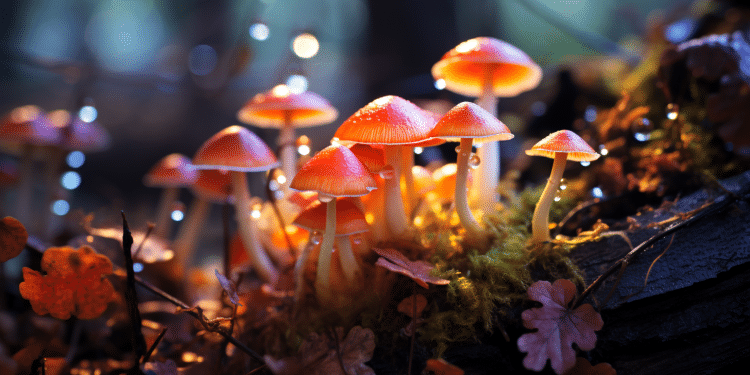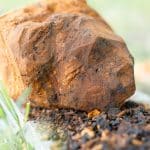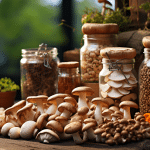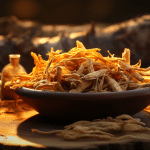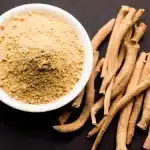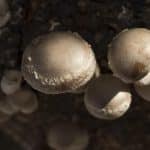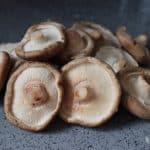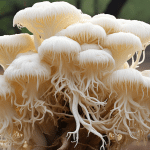Top 10 Benefits of Magic Mushrooms
If you have the experience of trying psychedelic mushroom chocolate bars than you know that many people find that taking psychedelic drugs changes their lives forever for a reason. They keep repeating that the experiement with mushrooms is one of the most critical events in their lives. What is more, shroom lovers are sure that this experience was more than just “good”. That’s why we took apart ten benefits of magic mushrooms and considered their effects on ordinary people.
Magic Mushroom Health Benefits
To begin with, it is worth saying that all magic mushrooms consist of psilocybin. Psilocybin is an alkaloid in the form of a white powder with a slight ammonia taste. It is soluble in water and ethyl alcohol, and its effect on the nervous system is similar to that of LSD, since LSD was firstly synthesized thanks to magic mushrooms. However, magic mushrooms effects are longer and more pronounced.
Psilocybin is a chemical compound that has a narcotic effect on the body, producing hallucinogenic effects. This substance is found in inedible saprophyte mushrooms, which are widespread, as well as in more than 200 species.
Mushroom psilocybin can also be obtained in laboratory conditions, making it much easier to distribute the drug. It is not psilocybin that causes a psychedelic effect, but psilocin. Psilocin is the derivative of psilocybin that naturally occurs in our body after consuming magic mushrooms and going through digestive system. Psilocin’s ability to change the perception of reality has long been used in recreational and shamanic practices.
The use of psilocybin mushrooms microdosing improves mental functions. They were used in medical practice to eliminate the causes of neurosis. However, this technique was soon abandoned due to the negative effect of the substance on the body, exceeding the positive impact.
Psilocybin Suppresses Negative Emotions
Scientific Reports conducted a study on the effects of psilocybin has on different people. The experiment involved 20 subjects, which included assessments one day before, one week after, and one month after taking a dose of psilocybin 25 mg/70 kg to test the hypothesis that taking psilocybin leads to long-term changes in effect and neural correlates of effect.
Once they took psilocybin, they underwent tests to process emotional information before consuming the psychedelic. During the experiments, scientists monitored brain activity using MRI scans. Then they compared the results to determine how the drug affects brain function in the medium term.
It was found that psilocybin mushrooms continue to act for at least a month after use.
Volunteers recorded reduced levels of stress, anxiety, depression and irritability. At the same time, volunteers scored higher on tests measuring levels of joy, satisfaction, pride, compassion and pleasure. The project’s authors also recorded positive changes in two personality traits – conscientiousness and attentiveness.
Thus, the use of magic mushrooms suppresses negative emotions and increases positive ones.
Psilocybin Mushrooms Modify the Neural Response to Stimuli
After taking psilocybin, human’s ability to recognize emotions from facial expressions improved (2.7% and 2.1% after one week and one month, respectively). Seven days after using the psychedelic, scientists recorded a reduced neural response to stimuli associated with the suppression of the activity of the amygdala body (a brain region). This effect disappeared after one month.
Psilocybin had no significant effect on visual data analysis in the rest of the brain.
Psilocybin Improves Learning Abilities
Within a month after the use of psilocybin, the volunteers had effects that improved their ability to learn:
- an increased level of concentration;
- activation of the reward mechanism for performing tasks related to learning;
- higher efficiency of decision-making (speed and correctness);
- increase in the number of functional connections in the cerebral cortex.
It’s not a surprise that thanks to such benefits psychedelic mushroom chocolate bars become a favorite treat of countless office workers. If you can complete your to-do list 2 times faster, then why not trying magic mushrooms chocolate?
The Therapeutic Potential of Magic Mushrooms
Based on the experiment results, the researchers concluded that psilocybin could be used to treat emotional disorders because the psychedelic helps control reactions to irritants, stimulates positive emotions and suppresses negative ones.
Mushrooms can help get rid of addiction to nicotine and alcohol because psilocybin eliminates some of the negative manifestations of withdrawal and cravings. The substance has a long-term positive effect on healthy people: it increases mood and well-being.
IMPORTANT: If you want to try psychedelic mushroom chocolate bars NEVER use them along with alcohol and medications (especially anti-depression ones and other neurostimulators). Such mix can have unpredictable effects on your body. The least that you can expect – you won’t feel anything, including magic mushroom benefits, the worst – side effects.
Hallucinogenic Mushrooms Enhance Creativity and Empathy for a Week
Scientists have found that psilocybin, the active ingredient in hallucinogenic mushrooms, increases a person’s creativity and sense of empathy while taking them and prolongs these effects for a week. These results will help to use hallucinogens more effectively in therapy.
For their work, the results of which were published in the Journal of Psychoactive Drugs, staff at Maastricht University involved 55 participants in a Psychedelic Society retreat in the Netherlands.
The participants in the retreat (a pastime devoted to spiritual practice) consumed psilocybin-containing mushrooms in tea form. They asked the subjects, about half of whom had not previously taken psilocybin, to take a series of tests that would measure their creativity, level of empathy, and overall life satisfaction three times: the day before taking the hallucinogenic mushroom tea, immediately after drinking it, and finally seven days later.
“We found that psilocybin taken in a naturalistic setting enhanced creativity and empathy in the morning and seven days after use. In addition, psilocybin was also found to improve subjective well-being,” states Natasha Mason, one of the article’s authors.
Researchers have studied two types of creativity:
- Convergent;
- Divergent.
The first type represents the ability to generate a single optimal solution to a problem. The second type allows you to find many options with several possible answers.
Participants’ divergent thinking abilities improved the following day after taking psilocybin, while convergent skills remained at the same level. However, one week later, divergent thinking abilities returned to normal, while convergent skills, on the contrary, improved.
“These results are essential for understanding the therapeutic benefits of psychedelics in treating specific pathologies. In particular, increased empathy can increase openness and trust between the patient and therapist. During a therapy session, increased creative thinking can allow people to break out of their old patterns and generate new and effective cognitive, emotional, and behavioural strategies. In addition, our data suggest that these effects persist over time, potentially providing an opportunity to use them at the most favourable time.” the scientist emphasizes.
In the last decade, scientific interest has been resurgent in the benefits of psychedelics: there is increasing evidence that such substances can have potential therapeutic value for disorders such as anxiety, depression, and post-traumatic stress disorder.
Psilocybin Alters the Functioning of the Brain Fence
American scientists have found that when taking psilocybin, the activity of the fence, a small bilateral plate of gray matter adjacent to the inner layers of the cerebral cortex, changes. At the same time, there are also changes in its functional connections with other areas: the auditory cortex, the passive brain network, and the areas responsible for cognitive functions.
In recent years, scientists have paid much attention to researching psilocybin (the active component of hallucinogenic mushrooms) as a possible treatment for mood disorders. In 2016, scientists showed that psychedelics help with severe depression. In 2018, psilocybin therapy received “breakthrough” status from the FDA.
Exactly how psilocybin affects the brain, however, is still not fully understood. It is known, for example, that at the neurotransmitter level, it acts on serotonin receptors (mainly 5-HT2A). Still, it needs to be clarified about brain activity and functional connections. However, studies show that taking psilocybin changes the action of the anterior cingulate and prefrontal cortex in depressed patients.
Frederick Barrett of Johns Hopkins University School of Medicine has suggested that this change in activity has some sort of command center —The site that psilocybin affects primarily, and through it, everything else.
To verify this, they conducted an fMRI experiment involving 15 volunteers: all of whom had already taken a psychedelic in a previous similar study. In addition, the authors noted that all of the participants had a long-standing meditation practice – and specified that none of the participants, according to their words, had meditated during the experiment.
The scan took place in two stages:
- During the first one, participants took psilocybin (in a dosage of 10 milligrams per 70 kilograms of weight);
- During the second, they took a placebo.
Participants took all medications under the same conditions – blindfolded and wearing headphones, lying on a gurney. After one hour and forty minutes they were taken to an MRI scanner to measure their brain activity at rest. Six hours after taking the drug or placebo, participants also filled out questionnaires about their mental state.
Researchers observed that taking psilocybin compared to placebo showed a significant (p < 0.05) reducing the amplitude of low-frequency vibrations of the fence (or claustrum) – a small bilateral plate of gray matter adjacent to the inner layers of the cortex connected by neural pathways to different parts of the cortex.
When taking psilocybin compared to placebo, there was also the impaired functional connection of the proper facet to the auditory cortex (p < 0.001) and the passive-mode brain network (p < 0.0001) and increased connectivity with the network responsible for cognitive control in the frontotemporal lobes (p < 0.001).
Psilocybin Facilitates the Erasure of Traumatic Memories
The active ingredient in hallucinogenic mushrooms, psilocybin, helps erase the memory of fear and pain and, in small doses, stimulates the formation of new neurons in the brain – neurogenesis. The discovery is reported by a team of researchers from the University of South Florida in the journal Experimental Brain Research.
Mice in the experimental chamber developed a conditioned reflex. The animals heard a sharp sound followed by an electric shock through the lattice floor of the cell. After multiple repetitions in response to the sound, the mice froze, demonstrating fear.
In those animals injected with psilocybin before the experiment, this negative memory faded faster than in control animals injected with saline. “They stopped hiccupping, and they forgot their fear,” explains Professor Juan Sanchez-Ramos, co-author of the study.
And psilocybin had such an effect at a small dose, much less than that which causes psychoactive effects.
Psilocybin has a psychoactive effect through its interaction with serotonin receptors, thereby altering the action of this neurotransmitter.
Psilocybin Proved to be as Effective in Treating Depression as Antidepressants
Scientists from Imperial College London have found that psilocybin, the active compound in hallucinogenic mushrooms, when combined with psychotherapy, can be a valid alternative to antidepressants.
The most common type of antidepressant is selective serotonin reuptake inhibitors (SSRIs).
These drugs have disadvantages, mainly side effects such as headaches, lethargy, and mood swings. There are also long-term effects, such as constant fatigue, insomnia, weight gain, and decreased libido.
One group was given an antidepressant with the active substance escitalopram for six weeks, and the second group was given two doses of psilocybin three weeks apart.
Throughout the experiment, participants in both groups visited a psychotherapist.
After six weeks, depressive symptoms decreased in both groups. Two doses of psilocybin were as effective for treating depressed patients as an antidepressant. “The results give hope that we are exploring a promising alternative treatment for depression,” said Robin Carhart-Harris, one of the study’s authors.
Psilocybin Significantly Accelerates Brain Cell Growth
Scientists show that psychedelic causes rapid growth of neural connections in the frontal cortex of the brain of mice – possibly why psilocybin is so effective as an antidepressant.
So, do psychedelics promote the same neural plasticity?
A new study published in the journal Neuron answers this question positively.
Using chronic two-photon microscopy, the researchers visualized several mice’s synaptic architecture of the medial frontal cortex. Their model focused on the number and density of neural connections called dendritic spines. Seven imaging sessions were conducted: the first began with a single dose of psilocybin, after which injections were repeated for a month.
Within 24 hours of taking a single dose of the psychedelic drug, researchers found an increase in the size and density of the dendritic spines. It was noted that these changes occurred very quickly and lasted for an unexpectedly long time.
A month later, a small number of these new neural connections were still preserved in the brain. Alex Kwan, the study’s senior author, notes that such an effect from a single dose of psilocybin surprised the team and that no one expected it to lead to lasting structural changes in brain tissue.
The Final Word
In recent years, magic mushrooms have become extremely popular. Many studies, including those about which we have told, prove that in reasonable quantities, psilocibyn containing mushrooms can be eaten to improve mood, cognitial functions and even to fight PTSD and depression. However, you should always remember that everyone has unique body features, so to say, everythin is individual. Feel free to try psychedelic mushroom chocolate bars in reasonable quantities to see the effect.
